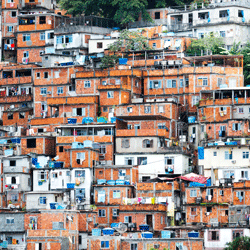The 2016 Summer Olympic Games in Rio de Janeiro, Brazil have become a highlighted controversy that plays into the country’s ongoing societal tensions. The Brazilian people expressed their anger towards the federal government’s major spending leading up to the 2014 World Cup, when billions of dollars went into preparation for the tournament and not toward social services such as education and health care. The same rage is now palpable in response to the Olympics and the government’s obvious bid for international fame and recognition.
Once the world’s most promising emerging power, Brazil is quickly spiraling into a deep recession —the GDP for 2015 is expected to have decreased by 3.7 percent, and inflation reached 10 percent. While attempting to deal with the economic crisis, President Dilma Rousseff is now fighting accusations that she mishandled public accounts, and opposition leaders have called for her impeachment amid political scandals (many question her ignorance of the Petrobras corruption, considering she had been the chairwoman of the company). The combined tensions of persistent economic inequality and the recession have resulted in a dreary atmosphere leading up to the games, a mood depicted by the abandoned houses, apartment complexes and real estate developments across Rio.
In preparation for both the World Cup and the Olympics, the Brazilian government began destroying favelas (slums) to make room for new development. Thousands of homes have been torn down with little or no prior notice. When residents returned to their communities to see their houses being taken apart, resistance against authorities has provoked violent reactions from both sides. The government claims to have relocated or reimbursed residents, but this is oftentimes insufficient. Either the payment is too low for a new house, or the location is in the periferia (city outskirts) and too far to commute to work. Rio authorities promise to only demolish 3,000 homes, but many residents assume the number will be much higher. Amnesty International and the special rapporteur of the United Nations Human Rights Council both have spoken out against Brazil’s eviction policies. The state claims to be removing the houses due to structural hazards or for planned developments that may never be constructed. If construction is completed, however, the developers are confronted with a dying market.
The Brazilian housing market boom of the last decade has become a distant memory. Real estate in Rio de Janeiro was especially profitable, but now abandoned construction projects decorate the city’s skyline. The government’s removal of favela residents is not solely motivated by improving the city’s general well-being. The city is more interested in replacing untitled and untaxable property with structures that will contribute to city revenue. However, the Olympic residential developments built in their place captured little interest. The New York Times cited the painful failure of the Olympic Village, where only 230 of the property’s 3,604 apartments have been sold a year after opening sales. Although economic slumps are commonly seen in cities hosting the Olympics, Rio is the first example where the economic downturn has come before the games. Rio also has lost 48,500 jobs — one of the highest jobs decline among Brazilian cities — due to graft scandals involving both the construction industry and the national oil company, Petrobras.
This real estate slump and its origins are not only a commentary on economic decline; it illustrates the government’s priorities in development. The actual cost of the Olympics has been trimmed to a budget of 7.4 billion reais ($1.9 billion USD) in order to avoid using public funds, which is a small percentage of the entire Brazilian economy. What was supposed to boost the morale of the city and the country has resulted in quite an opposite reaction. The idea of putting more money into luxury high-rises and international “show-case” events instead of investing in public goods and infrastructure exemplifies politicians’ short-term fixes and short-term benefits, which leads to long-term problems. Increasing the quantity of expensive housing is flooding the market and preventing the expansion of affordable housing, and the relocation of favela residents to the periferia furthers the division of social classes. The principal idea of developing Rio de Janeiro for extra revenue would not be necessary if the government was not prioritizing major projects or other ventures in addition to governing corruptly.
Anna Figueroa is a Rice University sophomore majoring in political science and Spanish and Portuguese. She is currently a program intern for the Baker Institute’s Latin America Initiative.
